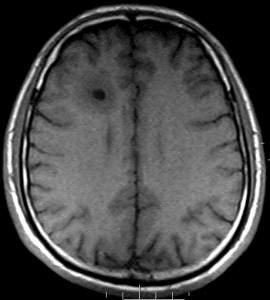
NHS responds to Mid Staffs
pharmafile | November 21, 2013 | News story | Sales and Marketing | Francis, Mid Staffs, NHS, UK
The government has accepted 281 out of the 290 recommendations contained in the Francis report – the damning document published by Robert Francis QC following the public inquiry into the failings of the Mid Staffordshire NHS Foundation Trust.
The NHS will become “more open, more accountable and more focussed on safety and compassion”, the government insists in its response to Francis.
The government has already made one stab at dampening down the outcry which arose from the revelations that several hundred patients may have died as a result of poor care at Stafford Hospital between 2005 and 2008.
In February it announced that it would appoint an inspector of hospitals and pass legislation making it illegal for NHS organisations to fudge the issue with patients and families when things go awry.
Its heavily-trailed plans more recently to introduce a new criminal offence of ‘wilful neglect’ – which could see health professionals jailed for not looking after patients – has already been criticised for perpetuating the ‘culture of fear’ in the NHS which it believes was in part responsible for the Mid Staffs scandal in the first place.
The government insists its new measures will “build on the cultural change already taking place in the wake of the hospital scandal”.
Health secretary Jeremy Hunt called the document a ‘blueprint’ for restoring patient trust and instilling NHS pride.
“I do not simply want to prevent another Mid Staffs,” he said. “I want our NHS to be a beacon across the world not just for its equity, but its excellence. I want it to offer the safest, most compassionate and most effective care available anywhere – and I believe it can.”
Hunt has set much store by being tough on the perceived weaknesses of the NHS: earlier this year 11 hospitals were put into ‘special measures’ after an investigation into mortality found a number of failings.
A report by NHS medical director Sir Bruce Keogh on this issue has been taken into account by the government when publishing its response to Mid Staffs, as have the findings of four other reports post-Francis – on safety, complaints, NHS box ticking and support workers.
The Department of Health will face Parliament each year to report its progress in implementing Francis “to ensure delivery of the recommendations”.
In addition to the eye-catching proposed statutory duty of candour for NHS organisations – which would be brought about by changes to professional codes – and the putative idea of criminal prosecution for the worst cases of neglect, the government says it is going to put into place a variety of less high profile changes.
These include reporting of ward staffing levels (monthly) and complaints data (quarterly), plus a national scheme starting next April and is designed to increase patient safety skills and a new, dedicated hospital safety website to be developed for the public.
The Department of Health says hospitals are planning to hire more than 3,700 extra nurses.
Adam Hill
Related Content

NHS accepts Pfizer’s tafamidis for ATTR-CM treatment
NHS England has announced that it has accepted Pfizer’s drug, tafamidis, for the treatment of …

NICE recommends migraine treatment for NHS use
The National Institute for Health and Care Excellence (NICE) has shared draft guidance recommending AbbVie’s …

Novo Nordisk launches Wegovy in the UK
Novo Nordisk has today announced that Wegovy (semaglutide injection) is now available in the UK …








